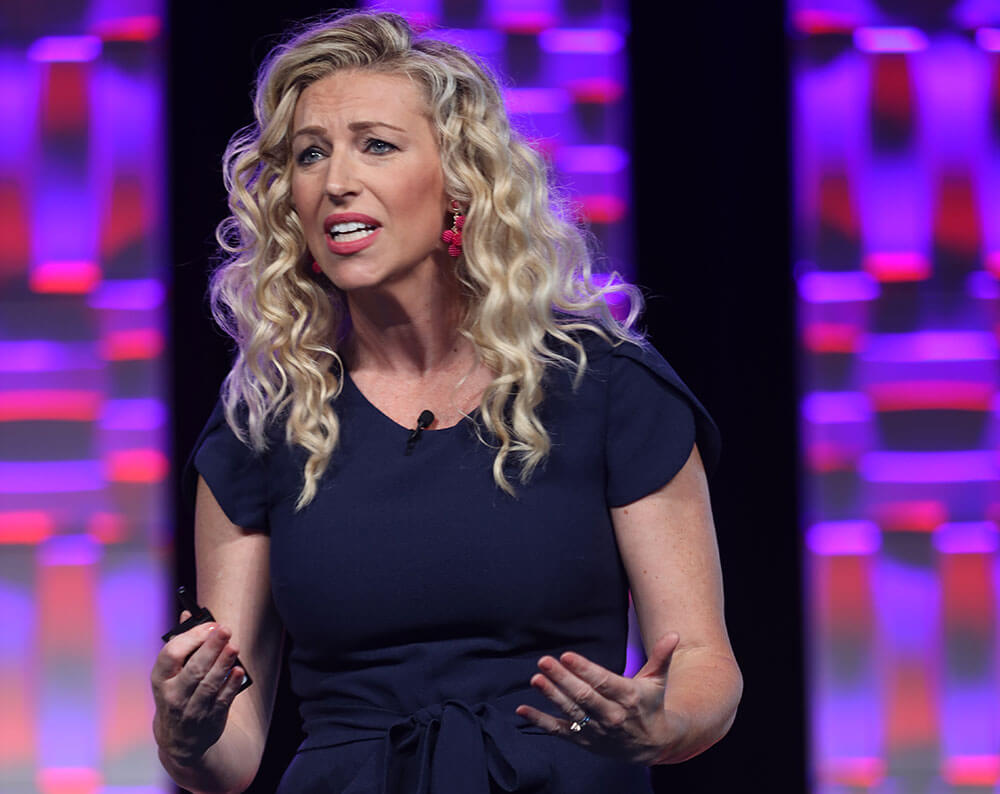
Sara Ross, the founder of BrainAMPED research group and a Main Stage speaker at EduCon 2019, advises people to think back on how strong they have been over the last 18 months, and write those thoughts in the form of a “resilience resume.” (Jacob Slaton Photography)
The human brain’s natural inclination, according to neuroscience expert Sara Ross, the founder of BrainAMPED research group, is toward a negative bias. “We tend to think that things are going to much more uncomfortable or more challenging than they turn out to be.”
But the same tendency that causes us to overestimate how challenging something will be also means, she said, “that we aren’t good at predicting how adaptable and flexible and resilient we are.”
If in late 2019, “you had told people that there was going to be a global pandemic and that they had three months to prepare,” Ross said, “I’m pretty sure 80 percent of us would say: ‘There’s no way I’m going to be able to get through what you’re telling me that’s going to happen.’” Yet we did. What our brains are good at, Ross said, is being reflective. “If we give ourselves the space to do it, we can look back and see our resilience and our bravery,” she said. “The ability to reflect is something we do really well.”
Ross has been advising her clients to take a half-hour or so just to think back on how strong they have been over the last 18 months, and then write it down in the form of a “resilience resume.” If you’re on a team, “write a team resume, and let your struggles unite you,” she suggested. Just looking at how much circumstances have asked of us over last year “will build your confidence,” she said. “We’ve done really, really, really hard things.”
Then keep your resilience resume close at hand and refer to it often, she said. “Enough is happening in the world to make you question yourself, so use it to build your positive proof that whatever happens, you can handle it.” Post-pandemic, “things won’t be the same,” she said, “but it also means things can be different. And different is possibility.”
We’re already in change mode, Ross said, so “why not keep changing? Ask yourself, what is the thing that you wanted? Whether it is better health, or deeper connections, or a different way of working, tap into this change that we’ve been experiencing. I’ve been asking people to do that, and I’ve just seen some of the most incredible things,” she said. “And now, it’s not just about people grieving, it’s about healing and sharing and reflecting. And there’s power in that.”
Barbara Palmer is deputy editor of Convene.
